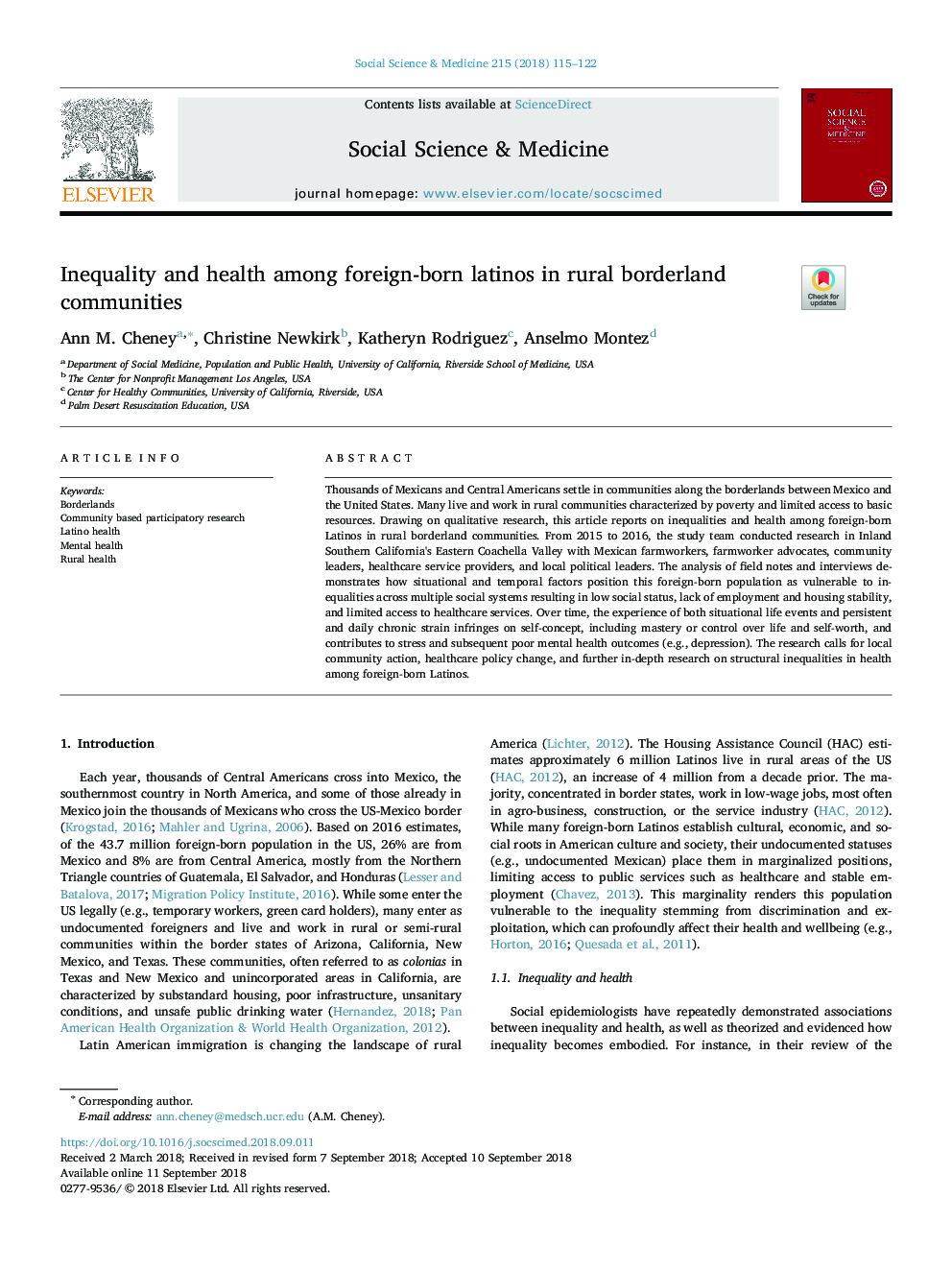| Article ID | Journal | Published Year | Pages | File Type |
|---|---|---|---|---|
| 10147079 | Social Science & Medicine | 2018 | 8 Pages |
Abstract
Thousands of Mexicans and Central Americans settle in communities along the borderlands between Mexico and the United States. Many live and work in rural communities characterized by poverty and limited access to basic resources. Drawing on qualitative research, this article reports on inequalities and health among foreign-born Latinos in rural borderland communities. From 2015 to 2016, the study team conducted research in Inland Southern California's Eastern Coachella Valley with Mexican farmworkers, farmworker advocates, community leaders, healthcare service providers, and local political leaders. The analysis of field notes and interviews demonstrates how situational and temporal factors position this foreign-born population as vulnerable to inequalities across multiple social systems resulting in low social status, lack of employment and housing stability, and limited access to healthcare services. Over time, the experience of both situational life events and persistent and daily chronic strain infringes on self-concept, including mastery or control over life and self-worth, and contributes to stress and subsequent poor mental health outcomes (e.g., depression). The research calls for local community action, healthcare policy change, and further in-depth research on structural inequalities in health among foreign-born Latinos.
Related Topics
Health Sciences
Medicine and Dentistry
Public Health and Health Policy
Authors
Ann M. Cheney, Christine Newkirk, Katheryn Rodriguez, Anselmo Montez,
